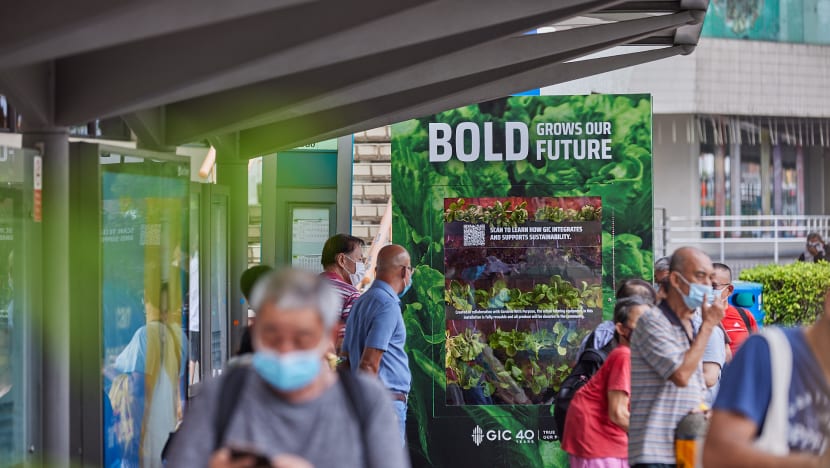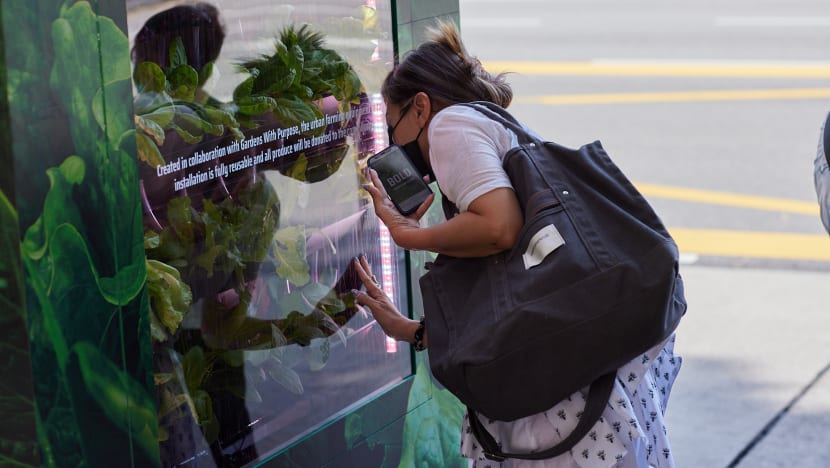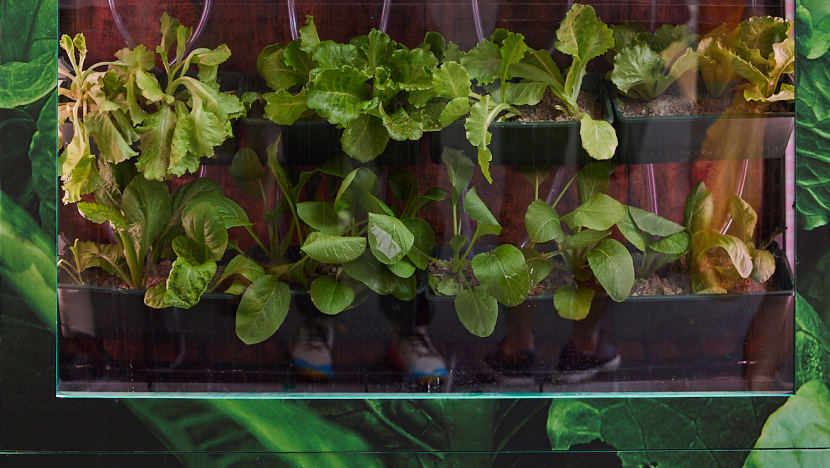Seven bus stops transformed into urban farms; all vegetables to be donated to local charity kitchen

The bus stops were chosen for their high traffic and visibility to raise awareness about sustainable food production. (Photo: GIC)
SINGAPORE: Seven bus stops in Singapore have been transformed into urban farms and are expected to produce more than 100kg of fresh produce for a local charity kitchen by mid-January, GIC said on Friday (Dec 17).
The initiative is a partnership between the sovereign wealth fund and local urban farming school Gardens with Purpose, and was launched to commemorate GIC’s 40th anniversary.
A mixture of fresh produce including butterhead lettuce, Chinese cabbage, and Kai Lan, have been planted at the bus stops.
Gardens with Purpose planted the vegetables from seeds in their farm, and these plants will continue to grow at the bus stops until they are ready to be harvested.
The vegetables will be tended by a team of 50 gardening enthusiasts from the community every week.

Crops that are ready to be harvested at the end of each week will be taken from the bus stops and delivered to Willing Hearts, a charity kitchen that prepares and distributes 9,500 meals daily to beneficiaries in Singapore.
The team will replace the harvested vegetables with new vegetables at a different stage of growth, until they are ready to be harvested as well.
GIC said the bus stops were chosen for their "traffic and visibility" to raise awareness about sustainable food production.
The bus stops are located at:
- NUS Bukit Timah Campus
- Opposite Cold Storage Jelita
- CHIJ Katong Convent
- Fu Lu Shou Complex
- St John Headquarters
- Singapore Polytechnic School of Science and Tech
- Before Bencoolen Station Exit A
Responding to queries from CNA, GIC said the structure for the urban farms was created around existing six-sheet shells, which are typically used for advertisements at bus stops. It declined to comment on the cost of each setup.
The edible urban farms will be on display for four weeks until Jan 12. After that, all harvested crops will be donated to Willing Hearts, said GIC.

Equipment such as planter boxes, ventilation fans, grow lights and water tanks will go back to Gardens with Purpose, where some will reused by other gardening enthusiasts to grow their own vegetables at home.
GIC added that all farming equipment used at these bus stops will be reused to ensure zero waste.
“We hope these urban farms at bus stops will spark ideas on how we can garden more at home or in the community,” said GIC's chief investment officer for fixed income and chair of the sustainability committee Liew Tzu Mi.
Gardens with Purpose said it has been conducting classes for the public and students to create awareness about urban farming.
“We are very excited to work on this project as I believe it will get people to reimagine urban farming and how they too might start growing their favourite vegetables,” said Ms Joanne Ng, owner of the local urban farming school.
In recent years, urban farms have gained popularity in Singapore. These include farms built on top of multistorey car parks in the heartlands, on the side of HDB buildings, as well as in laboratories.
The COVID-19 pandemic has also underscored the importance of local food production as a buffer in the event of global supply disruptions.
Last year, the Government announced a master plan to transform the larger Lim Chu Kang area into a high-tech agri-food cluster to bolster Singapore’s food security and also create jobs.
Singapore has set a target of meeting 30 per cent of its nutritional needs with food produced locally by 2030. Currently, Singapore imports more than 90 per cent of its food.



No comments
Share your thoughts! Tell us your name and class for a gift (: